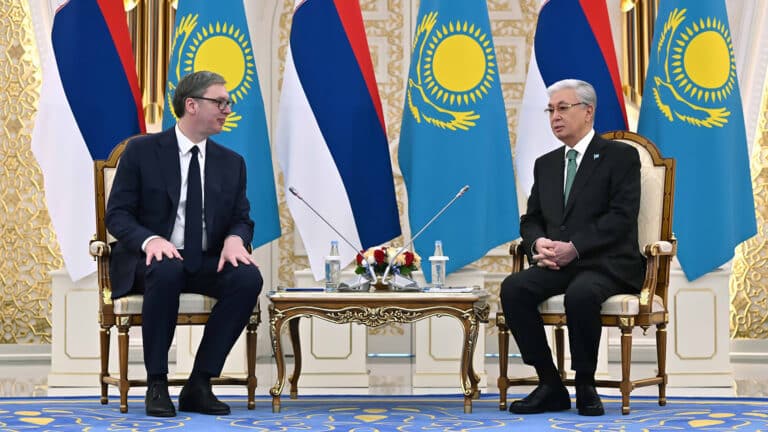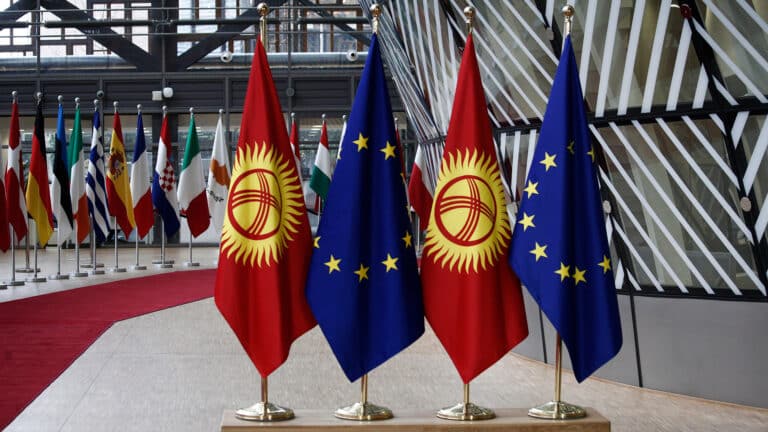
Kazakhstan’s Minister of Energy Almasadam Satkaliyev held a call with representatives of OPEC and other major oil producers to explain why the country exceeded its oil production quota in January, according to the Ministry of Energy.
«Minister of Energy of the Republic of Kazakhstan Almasadam Satkaliyev had a call with Prince Abdulaziz bin Salman, chairman of OPEC+ and Saudi Arabia’s energy minister; Alexander Novak, deputy prime minister of Russia and OPEC+ co-chair; and Haitham al-Ghais, secretary general of OPEC. During the conversation, Satkaliyev provided a technical explanation for why Kazakhstan increased oil production in January,» the ministry said in a statement.
According to Satkaliyev, last month’s increase in oil production was driven by the launch of the Third Generation Plant as part of the Future Growth Project at Tengiz. The project was originally scheduled to start in June or July this year. Satkaliyev explained that the rise in oil output resulted from testing conducted after maintenance at the oil field and the commissioning of a new processing facility at Tengiz.
«Satkaliyev confirmed that Kazakhstan remains fully committed to its obligations under the OPEC+ agreement, including the offset mechanism. The country will take all necessary measures to comply, including reducing oil output at other fields to compensate for January’s increase. He also stated that Kazakhstan will present an updated offset plan covering both overproduction and undelivered compensation from January,» the agency said.
In response, OPEC+ leaders emphasized that full compliance with quotas and compensation for excess oil production are critical under the agreement. They also stressed the importance of voluntary production cuts and the efforts of some OPEC+ members to maintain market stability.
In its monthly review last week, OPEC reported that Kazakhstan’s daily oil production (excluding gas condensate) increased from 1.465 million barrels in December to 1.538 million barrels in January, a 5% rise. This means Kazakhstan again exceeded its OPEC+ quota of 1.468 million barrels per day for the first quarter of 2025. Moreover, since the country had exceeded its quota multiple times in the past, it was expected to cut production by an additional 65,000 barrels per day in January. The deadline for compensating for overproduction has been extended to June 2026.
In late January, some media outlets reported that Tengizchevroil, a consortium led by Chevron (50%), ExxonMobil (25%), KazMunayGas (20%) and Lukoil (5%), had increased daily production to 870,000 barrels — a 45% increase over 2024’s average output. Earlier this year, Chevron and its partners had planned to raise Tengiz’s production to 850,000 barrels per day in the first half of 2024. The company has already invested $49 billion in the expansion project.
According to the Ministry of Energy, Tengizchevroil is expected to produce 34.7 million tons of oil in 2025 (about 760,000 barrels per day), representing a 24.8% increase over 2024’s production of 27.8 million tons. The company aims to expand oil output further in the coming months, eventually adding 12 million tons per year.
Kazakhstan plans to increase total oil and gas condensate production from 87.56 million tons in 2024 to 96.2 million tons in 2025. Tengizchevroil exports 95% of its oil via the Caspian Pipeline Consortium (CPC), with the remaining 5% transported through the port of Aktau and the Baku-Tbilisi-Ceyhan pipeline. The CPC expects Kazakhstani oil exports to rise in the second half of 2024 due to the Tengiz expansion project.
Once all production facilities at Tengiz are fully operational, the oil field’s total output will reach around 40 million tons per year, generating additional revenue for Kazakhstan through taxes, royalties and other financial payments. According to Chevron, Tengizchevroil’s net cash flow is expected to reach $4 billion in 2024 and $5 billion in 2026, assuming the Brent crude oil price stays at $60 per barrel.
Between January and September 2024, Tengizchevroil produced 21.4 million tons of oil (171.4 million barrels) and sold 951,000 tons of liquefied gas and more than 2 million tons of sulfur, compared to 932,000 tons of liquefied gas and 1.9 million tons of sulfur sold in the previous year. In 2023, Tengizchevroil also produced 21.7 million tons of oil. The Tengiz field’s total reserves are estimated at 3.1 billion tons of oil (25 billion barrels), while the Korolev field holds 200 million tons (1.6 billion barrels). Combined, the Tengiz and Korolev fields contain 1.4 billion tons (11.5 billion barrels) of extractable reserves.













